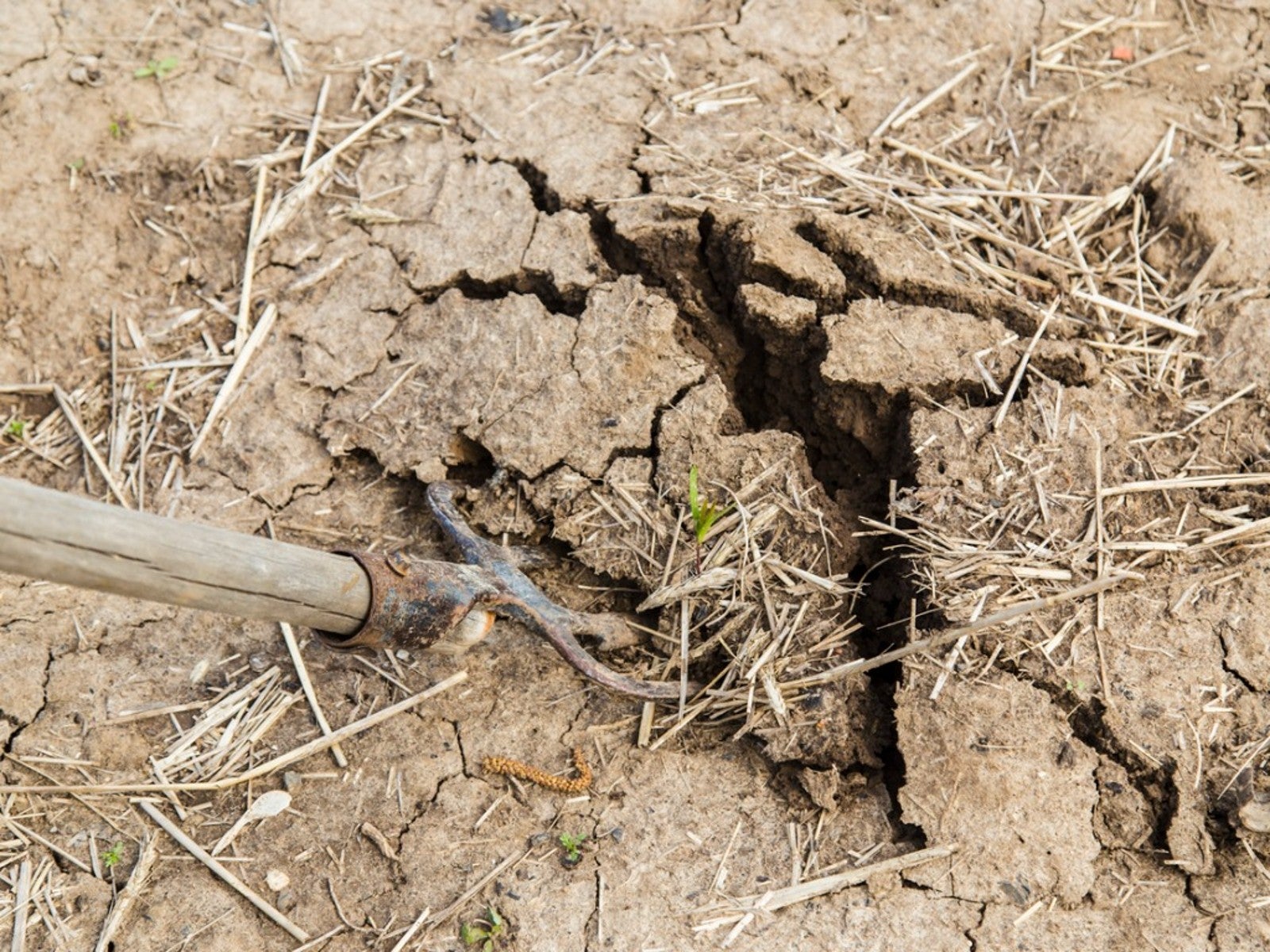
Sign up for the Gardening Know How newsletter today and receive a free copy of our e-book "How to Grow Delicious Tomatoes".
You are now subscribed
Your newsletter sign-up was successful
Compacted soil results in poor drainage and low oxygen, issues that may result in stunted or dead plants. If you find this is the case in your garden you might wonder how to loosen hard soil. Can you use gypsum to soften soil? What is the best tool to break up hard soil? We have the answers. Read on to learn how to soften hard soil.
Help, My Garden Soil is Hard as a Rock!
You don’t need a test to tell if your soil is compacted, but a soil test may help to determine the makeup of your soil – if it is predominantly clay, sand, silt, loam, etc. Soils composed of mostly clay or loams are often the culprit when it comes to compacted, low draining soils.
Soil may also become hard due to lack of water, rocky composition, or excessive foot, equipment or vehicle traffic. Over-tilling, working soil when it is sodden, and mixing sand into clay soil in an effort to lighten it can all contribute to compaction, resulting in soil that is hard and difficult to work.
Any of these reasons for compacted soil can lead to an inability to absorb water and nutrients. If this is the case you need to loosen and amend hard soil for successful plant growth.
About Hard Soil
The reasons for hardened soil are listed above, but there’s more to the story. Half of healthy soil is composed of particles of sand, silt and clay along with organic matter. The other half of the soil is called pore space: room for air and water movement around the mineral particles. Pore space allows beneficial organisms to break down plant residue into organic matter.
When pore space is reduced due to compaction, air and water can’t reach plant roots. Water often either pools or runs off.
How to Loosen Hard Soil
Soil may be so hard that digging with a standard garden shovel is impossible. If this is the case, you can try to use a broad fork to lever the compacted soil apart or a mechanical rototiller. As you break up the soil, add in organic matter like straw or chopped leaves. This can be turned back into the soil in the spring or fall.
Sign up for the Gardening Know How newsletter today and receive a free copy of our e-book "How to Grow Delicious Tomatoes".
Another idea to loosen hard soil is to sow a cover crop like buckwheat, annual ryegrass, winter wheat, hairy vetch or oilseed radishes at the end of the growing season. Mow and turn the cover crop the following spring prior to planting. The penetrating roots of the cover crop will aid in loosening the soil and tilling them in will add valuable organic nutrients.
If things are really bad you may need to resort to a jackhammer with spade attachment or even rent an excavator, especially for larger areas of hardened soil.
Can you Use Gypsum to Soften Soil?
In the case of hardened turf soil, many garden centers or lawn care services advise gypsum (calcium sulfate) to loosen compacted soil. Supposedly gypsum will improve the structure of clay soil that has compacted. But the thing is... it doesn’t work.
In the home garden, soil is often made up of organic and inorganic chemical additives that are compacted and layered. Gypsum will not work on layered soil. In this case the only reason to use gypsum is to increase soil calcium, not to loosen the soil. That said, adding gypsum can increase soil calcium overtly, which may then release aluminum or keep nutrients such as phosphorus from being taken up by the plant.
Gypsum should only be added to areas where sodium levels are high in clay soils such as in the arid western United States and in coastal regions.
In lieu of gypsum, aerify (core) the turf in the spring, summer or early fall to reduce compaction and lighten soil especially on large areas of turf such as sports fields.

Amy Grant has been gardening for 30 years and writing for 15. A professional chef and caterer, Amy's area of expertise is culinary gardening.
